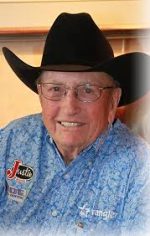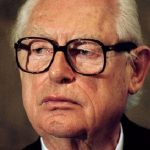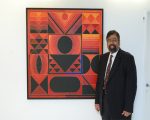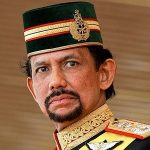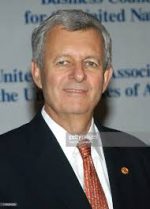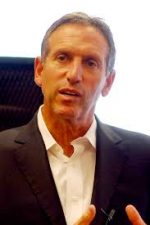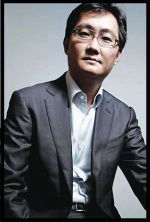Hadley Barrett is an experienced developer of sustainable property, renewable energy, the CEO of the Oxford Sustainable Group, and has been non-executive director of various private and stock market listed development companies. A British citizen, Barrett was born in Southampton, England.
Career:
With a blue chip and entrepreneurial background, Hadley Barrett founded the second-largest online bulletin board system in the UK at age 15 and later sold a Benelux-based Lifescience company. Since then, he has founded the Oxford Sustainable Group with operations in various countries throughout Europe,
Hadley Barrett graduated with a BA (Hons) in Economics. He received his MBA from Oxford University.
According to various media sources, as a tycoon he has a high estimated personal worth. His business interests include Finland, Mediafax/Ziarul quotes the Oxford Sustainable Group as developing in Romania, The Financial Times as a leading wind and renewable energy developer and Pensions News that Hadley has invested into Oxford projects.
Hadley has been quoted in various media, such as Investment Week, New Energy Finance, Pensions News, The Daily Telegraph, amongst other international publications, for his expertise on, variously: wind energy, renewable energy, real estate sustainable development and business in Scandinavia.
Background:
According to the Oxford Sustainable Group website, Hadley has been involved in advising global banks, governments, and institutions across Europe on wind energy and sustainability. He speaks English, Dutch and Russian. A keen sportsman, he played at a young age at the amateur level as centre forward for Southampton F.C. and Hampshire F.A., which are both UK-based football teams.
He used to be the Managing Director of Tetra Laval, the largest packaging corporation in the world. Rausing inherited the business from his father. The Swedish businessman also has substantial investments in Eastern Europe, particularly Russia and Ukraine. He is now based in London.
Hans Vestberg (born 23 June 1965) is a Swedish businessman and the current CEO of telecommunications company Ericsson.
Vestberg holds a Bachelor's degree in Business Administration from Uppsala University.
Vestberg has worked for Ericsson in China, Brazil, Mexico and the US. He is a founding member of the Broadband Commission for Digital Development, where he chairs the task group on the post-2015 development agenda.
Education and career:
He received a Business Administration degree from the Uppsala University, Sweden, in 1991, Vestberg got employed at Ericsson Cables in his hometown Hudiksvall. Since then he has had different management positions for Ericsson in China, Sweden, Chile and Brazil.
During the years from 1998 to 2000 Vestberg was CFO for Ericsson in Brazil and 2000-2002 he was CFO for Ericsson in North America and controller for North and South America. During 2002-2003 he was President for Ericsson in Mexico.
He also served as Chief Financial Officer for Ericsson from 2007 to 2009.
On 1 January 2010, he became CEO for Ericsson, replacing Carl-Henric Svanberg.
Personal life:
Vestberg is the chairman of the Swedish Handball Association. He also is the trainer of IFK Stocksund P02, a handball team in Stockholm.
Harsh Goenka (born December 1957) has been the chairman of RPG Enterprises, one of India’s largest business groups, since 1988, when he took over from his father R. P. Goenka. Today RPG is a major player in domains like power generation and distribution, information technology, infrastructure, tyres, plantations and pharmaceuticals, with an annual turnover of around US $2 billion.
History
The Goenka family belongs to the Marwadi community of money-lenders and tradesmen, and hails originally from Rajasthan in western India. As early as the 19th century, an enterprising member of the family, Ramdutt Goenka, set up base in Kolkata, which was then the capital of India, and a major commercial hub of the British Empire. The family prospered in its traditional vocations of money-lending and trade. It was in the 1970s that Rama Prasad Goenka (b.1930) leveraged the family's wealth to take over a variety of industries and corporates and thus create a ready-made business conglomerate. Many of these corporates were stressed due to the socialistic policies and the "License-Raj" then prevalent in India, and others were in the marked due to disagreements within the families of their owners. In a series of takeovers, RPG acquired such companies relatively cheap and used his financial resources and business acumen to make them viable. In this way, by the end of the 20th century, RPG had cobbled together a significant business empire. The Goenka business empire is remarkable for two things: firstly, the fact that none of their major ventures were founded by them, all being take-overs; and secondly, the resultant diversity and incoherence of these companies.
In 2010, Rama Prasad 'RP' Goenka formally divided his business empire (which by then enjoyed revenue of Rs. 16,000 Crores) between his two sons, Harsh and Sanjiv. The following major companies fell to Harsh's share:
RPG Enterprises was founded by his father R. P. Goenka in 1979 and has its origins in the Goenka business family, which has been at the forefront of business in India for over a hundred years. From pioneering organized retail to running the country’s first private sector power generating plants the group has also forged successful alliances with several of the world’s leading corporations. Group Company, KEC International is one of the largest power transmission EPC companies in the world. CEAT is amongst the leading tyre companies in the country and a leader in neighboring Sri Lanka,
After completing his education in Kolkata, Harsh Goenka began his career in Mumbai. After a brief stint in a textile company, he became the Managing Director of CEAT in 1983, at the young age of 24.
Education and early life
Harsh Goenka graduated in Economics from St. Xavier's College, Calcutta, and thereafter pursued his MBA from the International Institute for Management Development (IMD), Lausanne, Switzerland and has since been inducted on the Board of IMD, Lausanne.
Today
Today, Harsh Goenka wears many hats. Apart from being the Chairman of the Board of RPG Enterprises, [KEC International Ltd], RPG Life Sciences, Zensar Technologies and Raychem RPG Ltd, he is also the Chairman of CEAT Ltd. He is also a Director of Bajaj Electricals Ltd, and SICOM Ltd. The above are large corporations in India.
Goenka is a past President of the Indian Merchants' Chamber, a large industrial body. In 1993, when elected President of the Indian Merchants Chamber, Harsh Goenka was the youngest to hold the prestigious post and his involvement in formulating and driving economic agenda for industry continues through various institutions. He is also a member of the Executive Committee of the Federation of Indian Chambers of Commerce and Industry (FICCI, India’s premier industrial association). He is a member of the Board of Governors of the National Institute of Industrial Engineering (NITIE), one of the leading technical educational institutes in India. He also serves as a trustee of the Breach Candy Hospital Trust in Mumbai. Harsh Goenka has a vast experience in the field of management.
Other Interests
Harsh Goenka has one of the most prominent collections of contemporary art in the country, one that embraces several genres and styles and transcends several generations of artists from all regions. Harsh Goenka has been host to several art exhibitions in Mumbai for a decade and continues to support and encourage young artists.
He is a member of the National Art Advisory Committee for the National Gallery of Modern Art and a member of the Council of the National Culture Fund, Ministry of Culture.
Goenka has keen interest in cricket, which is India’s most popular sport. He promotes the CEAT Cricket Ratings for International and Domestic cricket which is a rating system that rewards outstanding cricketers around the world.
Family life
The Goenka family belongs to the Marwadi business community and hail from Rajasthan in north-western India. They have been settled in Kolkata for several generations. Harsh's great-grandfather, Sir Badridas Goenka, had been the first Indian Chairman of the Imperial Bank of India. His son (Harsh's grandfather) Keshav Prased Goenka died relatively young.
Harsh's father, Rama Prasad Goenka, was an very successful businessman and founder of the RPG Group. His business interests spanning the music industry, automobile types, power transmission and plantation estates. In 2010, that empire was divided between Harsh and his only brother, Sanjiv.
Harsh Goenka lives in Mumbai. He is married to Mala and they have two children, a son named Anant and a daughter named Vasundhara who is married to Apoorva Patni of the Patni business family.
He is the Sultan and Prime Minister of Brunei, a small country in Southeast Asia that has been blessed with abundant supply of oil and natural gas. He owns a giant automobile collection numbering about 6,000 cars.
Henning Holck-Larsen (July 4, 1907 Frederiksberg, Denmark — July 27, 2003 Mumbai) was a Dane who co-founded the Indian engineering firm Larsen & Toubro (L&T).
Early life and career
Henning Holck-Larsen was educated at the University of Copenhagen (and what is now the Technical University of Denmark). He came to India in 1937 as a chemical engineer working for F. L. Smidth & Co. of Copenhagen. Partnering with his former schoolmate and fellow employee Søren Kristian Toubro, he set up Larsen & Toubro in 1938. The idea of L&T was conceived during a holiday in Matheran, a hill station near Bombay. Holck-Larsen was a risk-taker while Toubro was more conservative. Larsen and Toubro saw opportunities in India at time, when few Europeans had realised the country's potential for industrial growth.
The first office of L&T, located in Bombay, was so small that only one of them could use it a time. Initially, L&T represented Danish dairy equipment manufacturers. However, the Danish imports were restricted during the World War II, forcing L&T to start a small workshop that provided servicing and undertook small jobs. The imports stopped after the German invasion of Denmark, forcing L&T to start manufacturing dairy equipment indigenously, a move that was successful.
Seeing opportunity in ship repair during wartime, Larsen and Toubro formed a new company called Hilda Ltd. Around this time, L&T also started two repair and fabrication shops. The internment of German engineers who were supposed to build a soda ash plant for the Tatas provided L&T another new opportunity.
Awards and recognitions
Ramon Magsaysay Award for International Understanding (1976)
Knighthood from Queen Margrethe II of Denmark (1977)
Sir Jehangir Ghandy Medal for Industrial Peace (1980)
Chemtech Foundation's Chemical Industry Stalwart Award (2000)
Bombay Management Association's Lifetime Achievement Award (2001)
Citation from the Indo-European Union Business Summit for promoting business beyond boundaries (2002)
Padma Bhushan (2002) for contribution to Indian industry
Henry A. McKinnell, Jr. (born February 23, 1943) is the former chief executive officer and former chairman of the board of directors of Pfizer Inc. He is also a director of ExxonMobil and Moody's.
He was born in Victoria, British Columbia, Canada. He originally worked towards a degree in chemistry but later changed his declared degree to business. He earned his bachelor's degree for business from the University of British Columbia in 1965. Later, he earned his master's and doctorate in business administration (finance subfield) from Stanford Business School.
Career:
His first job offer was for Pfizer, but he instead chose to work at American Standard for three years (1969–1971). He later joined Pfizer in early 1971. Over the course of the next 32 years, McKinnell climbed his way up several positions.
He was named CEO as of January 2001 and named chairman in April 2001. In 2003 he won the Woodrow Wilson Award for Corporate Citizenship. McKinnell was known as an aggressive and hard line advocate of trade sanctions against developing countries in disputes over patents and other intellectual property rights on medicines. In 2006, several Stanford alums asked that McKinnell be removed from an advisory board at the Stanford Business School, due to the aggressive use of litigation against the head of the Philippines regulatory agency.
Following falling share prices, McKinnell resigned the CEO position on July 28, 2006 amid dissatisfaction from the Board of Directors and declining investor confidence and was replaced by Jeff Kindler on that day. He was scheduled to remain as chairman until February 2007.
Pfizer was relatively conservative with regard to mega-mergers through stock-for-stock transactions through most of its history until McKinnell took the helm in 2001. Pfizer's per share price (adjusted for splits) went from about $50 to $30 from 1999 to 2006 during McKinnell's tenure. With roughly 7 billion shares outstanding, this reflects a loss in value of 140 billion dollars under McKinnell's leadership pursuing a strategy of growth via stock for stock acquisition.
It could be argued that some of the decline in Pfizer's market value during this time could be attributed to the overall decline in blue chip stocks from 1999-2001. However, many industry analysts criticized McKinnell for diluting shareholder value with these expensive stock-for-stock acquisitions that obviously paid a premium for the underlying value of the acquired company. Furthermore, internal contributions to the pipeline did not replace declining value nor did these M&A activities. However, McKinnell received record compensation which he staunchly defended against critics.
According to documents Pfizer filed with the Securities and Exchange Commission, McKinnell received a base salary in 2005 of $2,270,500, and a bonus of $3,700,000. He also received $145,814 in other compensation (primarily tax payments made by Pfizer on behalf of employees), and nearly $5.5 million in long-term incentive payouts. The value of his retirement package and deferred compensation will exceed $275,000,000.
McKinnell has, according to documents filed with the Federal Elections Commission, donated mainly to Republican Party candidates. He has donated to George W. Bush, John Thune, Chuck Grassley, and others.
According to the same FEC documents, McKinnell lives in Greenwich, Connecticut.
Howard D. Schultz (born July 19, 1953) is an American businessman. He is best known as the chairman and CEO of Starbucks and a former owner of the Seattle SuperSonics. He was a member of the Board of Directors at Square, Inc. In 1998, Schultz co-founded Maveron, an investment group, with Dan Levitan. In 2012, Forbes magazine ranked Schultz as the 354th richest person in the United States, with a net worth of $1.5 billion.
Early life and education:
Schultz was born to a Jewish family on July 19, 1953 in Brooklyn, New York, the son of ex-United States Army trooper and then truck driver Fred Schultz, and his wife Elaine. With his younger sister, Ronnie, and brother, Michael, he grew up in the Canarsie Bayview Houses of the New York City Housing Authority. As Schultz's family was poor, he saw an escape in sports such as baseball, football, and basketball, as well as the Boys and Girls Club. He went to Canarsie High School, from which he graduated in 1971. In high school, Schultz excelled at sports and was awarded an athletic scholarship to Northern Michigan University – the first person in his family to go to college. A member of Tau Kappa Epsilon, Schultz received his bachelor's degree in Communications in 1975.
Career:
After graduating, Schultz worked as a salesperson for Xerox Corporation and was quickly promoted to a full sales representative. In 1979 he became a general manager for Swedish drip coffee maker manufacturer, Hammarplast, where he became responsible for their U.S. operations with a staff of twenty. In 1981, Schultz visited a client of Hammarplast, a fledgling coffee-bean shop called Starbucks Coffee Company in Seattle, curious as to why it ordered so many plastic cone filters. He was impressed with the company's knowledge of coffee and kept in contact over the next year, expressing interest in working with them. A year later, he joined Starbucks as the Director of Marketing. On a buying trip to Milan, Italy for Starbucks, Schultz noted that coffee bars existed on practically every street. He learned that they not only served excellent espresso, they also served as meeting places or public squares; they were a big part of Italy's societal glue, and there were 200,000 of them in the country.
On his return, he tried to persuade the owners (including Jerry Baldwin) to offer traditional espresso beverages in addition to the whole bean coffee, leaf teas and spices they had long offered. After a successful pilot of the cafe concept, the owners refused to roll it out company-wide, saying they didn't want to get into the restaurant business. Frustrated, Schultz decided to leave Starbucks in 1985. He needed $400,000 to open the first store and start the business. He simply did not have the money and his wife was pregnant with their first baby. Jerry Baldwin and Gordon Bowker offered to help. Schultz also received $100,000 from a doctor who was impressed by Schultz’s energy to “take a gamble”. By 1986, he raised all the money he needed to open the first store 'Il Giornale' after the Milanese newspaper. Two years later, the original Starbucks management decided to focus on Peet's Coffee & Tea and sold its Starbucks retail unit to Schultz and Il Giornale for $3.8 million.
Schultz renamed Il Giornale with the Starbucks name, and aggressively expanded its reach across the United States. Schultz's keen insight in real estate and his hard-line focus on growth drove him to expand the company rapidly. Schultz did not believe in franchising, and made a point of having Starbucks retain ownership of every domestic outlet.
On 26 June 1992, Starbucks had its initial public offering and trading of its common stock under the stock ticker. The offering was done by Alex, Brown & Sons Inc. and Wertheim Schroder & Co. Inc.
Schultz authored the book Pour Your Heart Into It: How Starbucks Built a Company One Cup at a Time with Dori Jones Yang in 1997. His second book Onward: How Starbucks Fought for Its Life Without Losing Its Soul with Joanne Gordon, was published in 2011.
On January 8, 2008 Schultz returned as CEO of Starbucks after an eight-year hiatus. At this time, Schultz was earning a total compensation of $9,740,471, which included a base salary of $1,190,000, and options granted of $7,786,105. Schultz is a significant stakeholder in Jamba Juice.
On the first of November 2013, it was announced that Schultz had stepped down from the board of Square, to be replaced by former Goldman Sachs executive David Viniar.
Ownership of the Seattle SuperSonics:
Schultz is the former owner of the NBA's Seattle SuperSonics. During his tenure as team owner, he was criticized for his naïveté and propensity to run the franchise as a business rather than a sports team. Schultz feuded with player Gary Payton, feeling that Payton disrespected him and the team by not showing up to the first day of training camp in 2002. On July 18, 2006, Schultz sold the team to Clay Bennett, chairman of the Professional Basketball Club LLC, an Oklahoma City ownership group, for $350 million, after having failed to convince the city of Seattle to provide public funding to build a new arena in the Greater Seattle area to replace KeyArena. At the time of the team's sale, it was speculated that the new owners would move the team to their city some time after the 2006–2007 NBA season. On July 2, 2008, the city of Seattle reached a settlement with the new ownership group and the SuperSonics moved to Oklahoma City and became the Thunder for the 2008–09 NBA season. The sale to the out-of-state owners considerably damaged Schultz's popularity in Seattle. In a local newspaper poll, Schultz was judged "most responsible" for the team leaving the city. Before the city of Seattle settled with the Oklahoma City ownership group, Schultz filed a lawsuit against Bennett – in April 2008 – to rescind the July 2006 sale based on what Schultz claimed was fraud and intentional misrepresentation. However, Schultz dropped the lawsuit in August 2008. When Bennett purchased the SuperSonics and its sister franchise in the WNBA, the Seattle Storm, for $350 million, he agreed to a stipulation that he would make a "good-faith best effort" for one year to keep both teams in Seattle. The sincerity of the good-faith effort was widely disputed by the way Bennett acted and by direct quotes from his partner Aubrey McClendon. On January 8, 2008, Bennett sold the Storm to Force 10 Hoops, LLC, an ownership group of four Seattle women, which kept the team in Seattle.
Mama Huateng was born into the world in on 29th October, 1971 in Chaoyang, Shantou, Guangdong. He is a Chinese very rich person business head honcho. He is the organizer, director and CEO of Tencent, Asia's most significant organization, one of the biggest Internet and innovation organizations, and one of the greatest speculation, gaming and diversion combinations on the planet. The organization fosters China's greatest portable texting administration, WeChat, and its auxiliaries give media, diversion, installment frameworks, cell phones, web related administrations, esteem added administrations and web based publicizing administrations, both in China and worldwide. In 2007, 2014, and 2018, Time magazine named him one of the world's most persuasive individuals, while in 2015, Forbes acknowledged him as one of the world's most influential individuals. In 2017, Fortune positioned him as among the top financial specialists of the year. In 2018, he was named one of the "Most Powerful People In The World" by the CEOWORLD magazine. Mama was a representative to the Shenzhen Municipal People's Congress and an agent in the twelfth National People's Congress. Being one of "Fortune world's most prominent pioneers", Ma is referred to for his position of safety character when contrasted with individual Chinese finance manager and Alibaba originator Jack Ma's cordial character. Mama has been contrasted with American financial backer Warren Buffett for their comparable speculation draws near, and frequently depicted as an "forceful acquisitor".
Mama Huateng's dad, Ma Chenshu found a new line of work as a port administrator in Shenzhen, the youthful Ma went with him. He was taken on Shenzhen University in 1989, and graduated in 1993 with a four year college education in software engineering. Mama utilizes the epithet Pony, gotten from the English interpretation of his family name Ma (马), which signifies "horse." Ma Huateng only occasionally shows up in the media and is known for his cryptic way of life. He has faith in the adage: "Thoughts are not significant in China – execution is." Ma Huateng's abundance comes from the 9.7 percent stake in Tencent Holdings. He apparently claims property in Hong Kong and craftsmanship pieces worth US$150 million. He claims a redeveloped palatial home of 1,820 m2 (19,600 sq ft) in Hong Kong.
Mama's first occupation was with China Motion Telecom Development, a provider of media communications administrations and items, where he was accountable for creating programming for pagers. He purportedly acquired $176 each month. He additionally worked for Shenzhen Runxun Communications Co. Ltd. in the innovative work division for Internet calling administrations. Alongside four different cohorts, Ma Huateng went on to help establish Tencent in 1998. The organization's first item came after Ma took part in a show for ICQ, the world's first Internet texting administration, established in 1996 by an Israeli organization. Enlivened by the thought, Ma and his group dispatched in February 1999 a comparable programming, with a Chinese interface and a marginally extraordinary name – OICQ (or, Open ICQ). The item immediately got famous and collected in excess of 1,000,000 enlisted clients before the finish of 1999, making it one of the biggest such administrations in China. Discussing the establishing of Tencent, he revealed to China Daily in a 2009 meeting that "In the event that I have seen further, it is by remaining on the shoulders of monsters," rewording a statement ascribed to Isaac Newton and referring to the likenesses among ICQ and OICQ. "We realized our item had a future, however around then we just couldn't manage the cost of it," Ma recollected. To take care of the issue, Ma requested bank credits and surprisingly discussed selling the organization. Since Tencent's valued assistance OICQ was offered for nothing, the organization hoped to financial speculators to back its developing functional expenses. In 2000, Ma went to US speculation firm IDC and Hong Kong's telecom transporter Pacific Century CyberWorks (PCCW) who purchased 40% of Tencent's offers for US$2.2 million. With the pager market declining, Ma further developed the informing stage by permitting QQ clients to send messages to portable handsets. Thereafter, 80% of the organization's income came from bargains hit with telecom administrators who consented to share message expenses.
